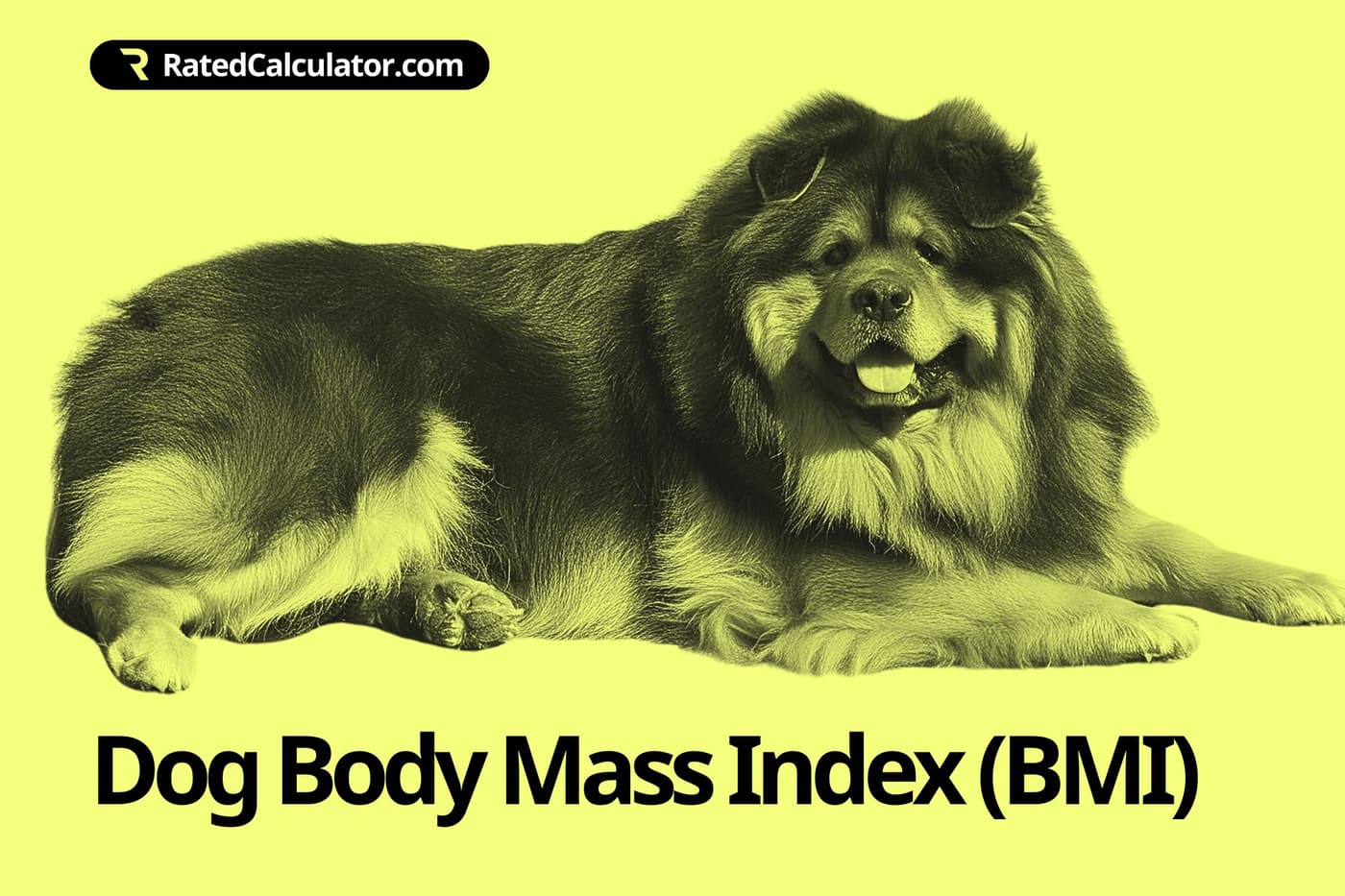Dog BMI Calculator
How to Use the Dog BMI Calculator

To calculate your dog's BMI, simply input their weight, height, breed, age, and gender. The BMI calculator will provide an estimate of whether your dog is underweight, normal weight, or overweight based on their BMI value.
How the Calculator Works
BMI (or Body Mass Index) is a measure that uses weight and height to estimate body fat. While it is commonly used for humans, a similar concept can be applied to dogs to help monitor their weight and overall health. It's a useful screening tool to identify potential weight problems in dogs.
The Dog BMI Calculator uses the following formula to estimate your dog's Body Mass Index (BMI):
First, the weight and height of your dog are converted to metric units if necessary. The weight is divided by the height squared to calculate the BMI. This BMI value is then compared to standard ranges to determine if your dog is underweight, healthy, or overweight.
Is Your Dog Overweight, Healthy, or Underweight?
By comparing your dog's BMI and BCS, you can determine if they are overweight, healthy, or underweight. Regularly monitoring your dog's weight and body condition is crucial to ensuring their long-term health and well-being. If your dog falls outside the healthy range, consult with your veterinarian for guidance on dietary and lifestyle changes.
Why Your Dog Might Be Overweight, Underweight, or Healthy
Overweight: Dogs can become overweight due to overfeeding, lack of exercise, or underlying medical conditions such as hypothyroidism. Obesity can lead to various health issues, including joint problems, diabetes, and heart disease. To help an overweight dog, consider portion control, switching to a weight management diet, and increasing their physical activity. Regular vet check-ups are essential to rule out any medical causes.
Underweight: A dog might be underweight due to poor diet, parasites, chronic illnesses, or higher energy needs than what is being provided. Being underweight can lead to weakened immune systems, muscle loss, and overall poor health. Addressing an underweight condition involves ensuring a nutrient-rich diet, treating any medical issues, and possibly providing more frequent, smaller meals throughout the day.
Healthy: A dog at a healthy weight typically has a well-defined waist, ribs that are easily felt but not seen, and an overall proportionate body. Maintaining this healthy weight involves balanced nutrition, regular exercise, and routine vet visits to monitor their condition and catch any potential health issues early.
How to Make Sure Your Dog is Healthy
To keep your dog healthy, ensure they receive a balanced diet, regular exercise, and routine veterinary check-ups. Here are some tips to maintain your dog's health:
- Balanced Diet: Feed your dog high-quality pet food that meets their nutritional needs based on their age, breed, and activity level.
- Regular Exercise: Provide ample opportunities for physical activity, including daily walks, playtime, and mental stimulation.
- Routine Check-ups: Schedule regular veterinary visits to monitor your dog's health and catch any potential issues early.
- Weight Monitoring: Regularly check your dog's weight and body condition to ensure they remain within a healthy range.
References
- American Kennel Club: Breed Weight Chart
- VCA Animal Hospitals: Body Condition Scores